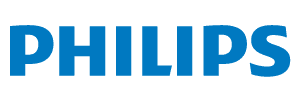Pressmeddelande -
New Philips NeuroSuite reveals the brain’s vascular network like never before
- NeuroSuite interventional X-ray system enhances minimally invasive neurological treatment
- Solution supports more effective device guidance and placement in live image-guided neuroradiology procedures, extending treatment options
- First installation at Karolinska University Hospital Sweden
Amsterdam, the Netherlands – Royal Philips (NYSE: PHG, AEX: PHIA) today announced the introduction of NeuroSuite, a new integrated solution designed to support and enhance minimally invasive image-guided neurological interventions, a fast growing market with a compound annual growth rate of around 9 percent. Philips’ new interventional X-ray solution offers more effective device guidance and placement in every neuroradiology procedure.
The first NeuroSuite system was recently installed at Karolinska University Hospital, Stockholm, Sweden. This hospital is one of the world´s leading medical universities and a center of excellence for stroke treatment.
Neuroradiology is a branch of radiology that involves the diagnosis and minimally invasive treatment of the brain, head, neck and spine. These treatments require the insertion of a catheter, which must be navigated through a very narrow (with vessels less than 2 mm wide) and tortuous vasculature to the treatment site with the aid of live image guidance. New devices (e.g. stents and flow diverters) offer new treatments for ischemic stroke or large neck aneurism, but their increasingly smaller designs make the devices more difficult to see with X-ray imaging. This can present additional challenges for placement and treatment assessment.
To cope with these challenges Philips’ NeuroSuite consists of a bi-plane interventional X-ray system with a unique combination of two new detectors: Philips’ frontal FD20 detector delivers live 2D and 3D imaging to provide live navigation and immediate therapy feedback. The smaller, lateral FD15 detector can be positioned beyond the shoulders and very close to the head. This shorter distance and unique combination of detectors provides sharp, full brain imaging at lower X-ray dose and 3D imaging optimized for neuro and spine interventions.
“In image-guided interventions the ultimate goal is to see clearly and navigate effectively, while managing X-ray dose for patients, staff and clinicians,” says Ronald Tabaksblat, General Manager Interventional X-ray at Philips Healthcare. “Developed in collaboration with clinical partners around the world, Philips NeuroSuite has been designed for that purpose and underpins Philips’ global leadership position in live-image guidance technologies.”
“In interventional neuroradiology the performance of the angiographic system is crucial to patient safety,” says Dr Michael Söderman, Associate Professor and Chief of Neuroangiography and Stereotaxy, Department of Neuroradiology, Karolinska University Hospital. “Philips’ latest innovation is NeuroSuite with a new 20 inch detector on the frontal plane, providing superb 3D-images and big enough for spine imaging. On the lateral plane, the new 15 inch detector brings visualization of the complete cerebral vasculature, with reduced collision risks and enhanced projection freedom.”
At the heart of NeuroSuite is Philips AlluraClarity, lowering radiation dose by as much as 73 percent without compromising image quality2,3 and VasoCT that visualizes intracranial devices in vessel context and vessel morphology down to perforator vessels1.
“Over the last years a lot of progress was made on high resolution device visualization”, says Professor Jacques Moret of the faculty of medicine Bichat-Beaujon at the University of Paris, France. “The next step in our collaboration with Philips is the NeuroSuite bringing enhanced vessel and device visualization and full head coverage. The new detector combination could be especially useful for stroke treatment.”
Philips NeuroSuite will be officially launched at the Live Interventional Neuroradiology & Neurosurgery Course (LINNC) in Paris from June 23-25, 2014.
NeuroSuite is currently not available in the USA.
More information on NeuroSuite can be found at: www.philips.com/neurosuite-case
1 Kizilkilic O , et al, Utility of VasoCT in the treatment of intracranial aneurysm with flow-diverter stents, J. Neurosurg, 2012 May 4. [Epub ahead of print].
2 Radiation dose in neuroangiography using image noise reduction technology: a population study based on 614 patients - Michael Söderman, Mauti, Boon, Omar, Marteinsdóttir, Andersson, Holmin, Hoornaert - 15 August 2013
3 Image Noise Reduction Algorithm for Digital Subtraction Angiography: Clinical Results1 - Söderman, Holmin, Andersson,Palmgren, Babi, Hoornaert - Radiology: Volume 269: Number 2—November 2013
Van der Bom IMJ, et al. BMJ Case Rep 2013. doi:10.1136/bcr-2013-010763
For further information, please contact:
Steve Klink
Philips Group Communications
Tel: +31 6 10 8888 24
E-mail: steve.klink@philips.com
Ämnen
- Hälsa, sjukvård, läkemedel
Kategorier
- philips healthcare
- neurosuite interventional
- philips neurosuite
- neurosuite interventional x-ray
Om Philips
Royal Philips, Holland (NYSE: PHG, AEX: PHI), är ett företag inom hälsa och välbefinnande som fokuserar på att förbättra människors liv genom innovationer inom hälsa, livsstil och ljus.
Huvudkontoret ligger i Holland och Philips har 112,000 anställda i mer än 100 länder. Med en försäljning på 23,3 miljarder euro 2013, är företaget marknadsledande inom hjärt- och akutvård samt vård i hemmet, energieffektiva nya ljuslösningar såväl som rakning och grooming för män, och tandvård. Nyheter från Philips återfinns på adressen www.philips.se/press
Följ oss också på:
